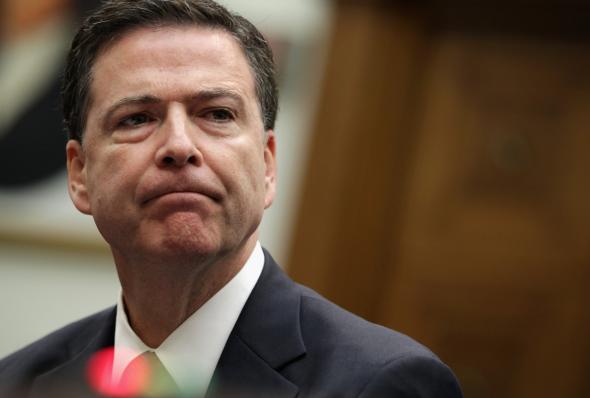On Thursday, FBI Director James Comey offered a rather tone-deaf critique of new privacy protections offered on Apple and Google mobile operating systems. “I am a huge believer in the rule of law,” Comey assured reporters, according to the Huffington Post. “But I am also a believer that no one in this country is above the law.” He warned:
There will come a day—well it comes every day in this business—when it will matter a great, great deal to the lives of people of all kinds that we be able to with judicial authorization gain access to a kidnapper’s or a terrorist or a criminal’s device. I just want to make sure we have a good conversation in this country before that day comes. I’d hate to have people look at me and say, “Well how come you can’t save this kid,” “how come you can’t do this thing.”
Evidently deterred by neither recent Supreme Court rulings recognizing the sanctity of the cellphone nor public outrage over the umpteenth national security surveillance scandal, Comey’s message is clear: If we want your cellphone, we should be able to get it.
So what explains Apple’s and Google’s enthusiasm for instituting these new privacy features? Attention to privacy has earned Apple and Google praise and public goodwill, but the typical consumer’s choice of phone is usually more a function of whether a device fits into a pants pocket than whether it is subpoena-proof. Matthew Green argued on Slate that Apple’s embrace of better encryption isn’t just targeting U.S. law enforcement—it’s trying to protect cellphone users from hackers and other governments.
A third option: Apple and Google are protecting themselves.
Regardless of whether Apple and Google are “marketing something expressly to allow people to place themselves above the law,” as Comey put it, the companies may have been successful at placing themselves beyond the law. When it’s technologically infeasible to provide the information, the ethical problem of disclosing personal data is quickly dispatched and the legal question of “do we have to?” is immediately answered. No access. No data. No liability. No trouble.
Somewhere in Cupertino, California, an Apple lawyer giddily anticipates his response to a probing phone call. It’s a few months off, but it’s coming. “I’m sorry, but we are unable to provide you with that information. We would if we could, but Apple does not have the ability to access that user’s data records. He has enabled encryption technology passcode that prevents us from gaining access. We would so love to help you, but it’s out of our hands.” And when he hangs up, he will smile.
